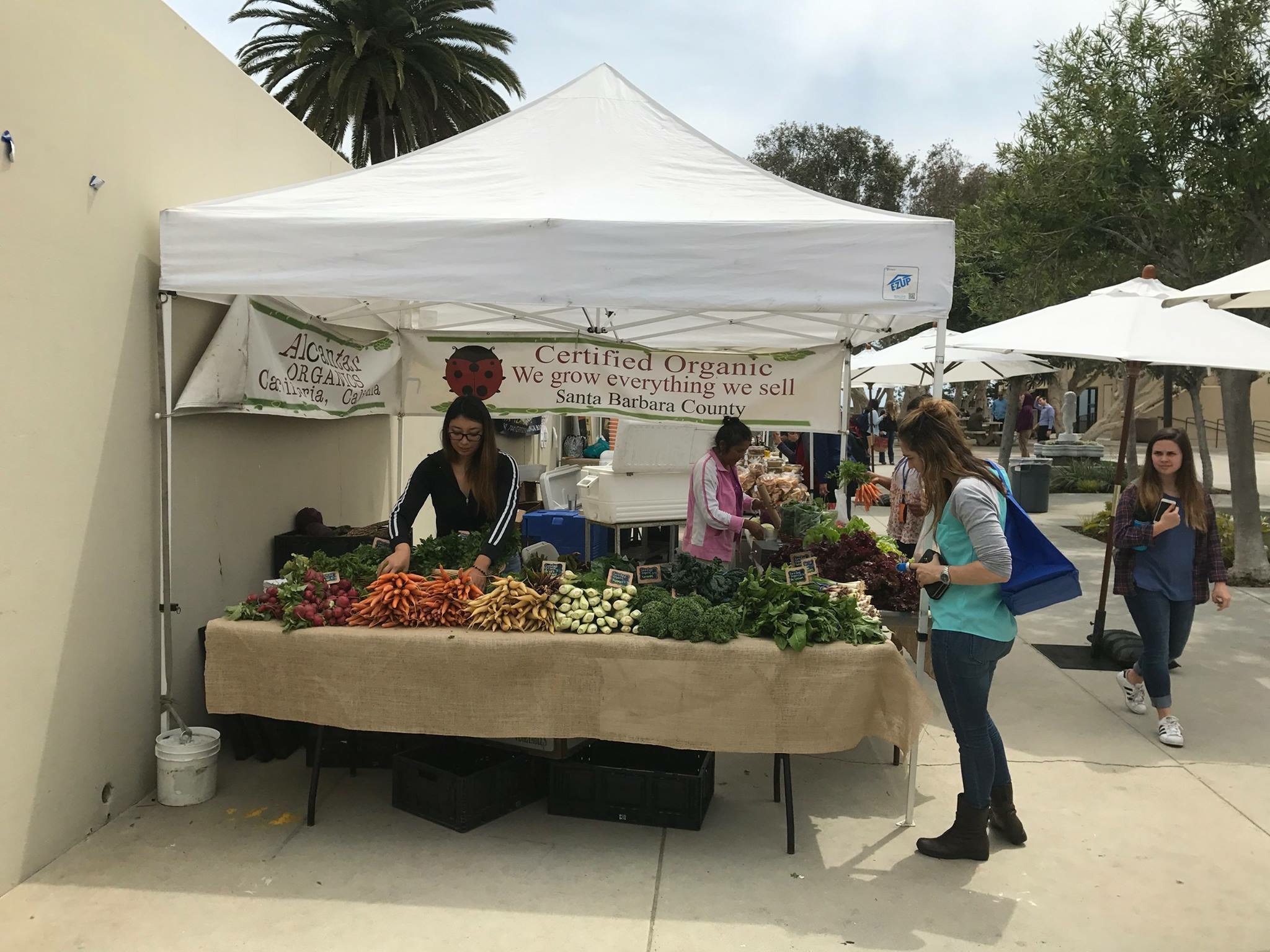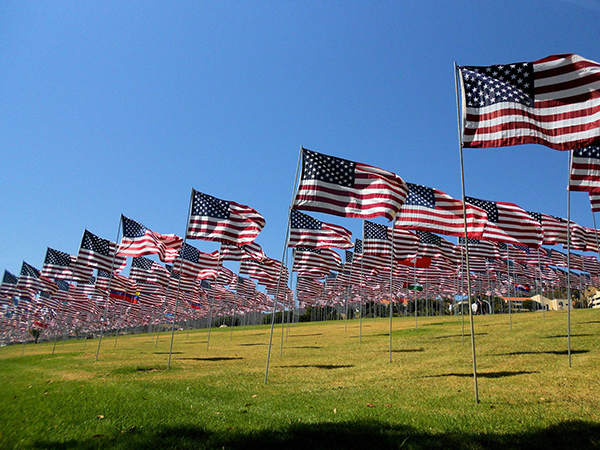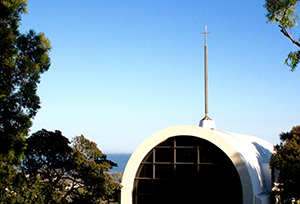
Pepperdine has made strides toward ecology, but eco-warriors on campus stress there is much more work to do.
Pepperdine was an early leader in water recycling, but the university could be doing more with education on conservation and energy use, Pepperdine GreenTeam leaders said. Sustainability leaders stressed that Pepperdine’s Church of Christ affiliation should make caring for the environment a priority.
“We were called to be good stewards of God’s creation,” said Ryan Tarbert, a junior political science major at Pepperdine, “and in that we are not supposed to take more than we need, and at the end of the day none of this is ours, it’s all his.”
Eco-friendly frontrunners on campus aim to better educate students, faculty and administration about how Pepperdine can be more environmentally savvy — and why their faith calls them to creation care.
Pepperdine’s eco-warriors
In 1972, Pepperdine implemented a recycled water system instead of using normal drinking water for campus irrigation. It was an innovative and original idea that led other campuses to follow suit, said Emily Mead, the coordinator of the Center for Sustainability.
However, that was over 40 years ago.
“We perform well in terms of water, but we could be doing a lot better in terms of energy,” Mead said. We (the administration) have gaps in how well we are doing, we just have to push in certain areas and know our strengths in others.”
Environmental programs on campus include the GreenTeam, a sustainability minor, volunteer events, an unwanted electronics recycling drive, a community garden and the Eden House, a sustainable living dorm, Mead said.
Certain champion students are making waves toward a greener campus and educating others.
“The health of our ecosystems are connected to the health of ourselves and our communities,” said Gabby Palmeri, a senior biology and political science major.
A Pepp Post poll of 52 students found that roughly 42 percent of students believe that Pepperdine is doing good or very good at taking care of the environment and 25 percent think Pepperdine’s efforts are poor or need improvement. Nearly 16 percent said they couldn’t say.
Pepperdine front-runners on sustainability believe Pepperdine could be doing a lot better at conservation.
Lizzy Lebleu, a sophomore business administration major and sustainability minor, said Pepperdine is lacking when it comes to sustainability and the administration needs to take strides in educating students about what it looks like to be an eco-friendly member of society.
“We are so far behind and I think that it is going to catch up to us,” Lebleu said. “Lots of other schools have more of a common knowledge that being environmentally friendly should be widely accepted.”
The campuses eco-warriors all agreed that Pepperdine needs to do better in energy use. Other Southern California campuses, such as University of California Los Angeles, have done this by using clean energy plants.
UCLA’s energy plant uses clean energy by using wasted heat and making it into steam and cold water to power nearly the entire school. While this is a large project, Pepperdine is making steps toward sustainability with the administration investing more money in renewable energy funds, according to the university’s website.
“A pipe dream would be eventually getting solar panels on our roof tops at some point to start generating our own energy,” said Religion Professor Chris Doran, the founder of the sustainability program at Pepperdine. “… We have 300 days of sun a year, we should have solar panels somewhere on campus.”
Awareness
The Pepp Post poll also asked students to describe eco-friendly efforts that they were aware of at Pepperdine, and the top three included recycling, reclaimed water and Eden, the sustainable living dorm that Pepperdine is testing.
Some students were not aware of any sustainability programs at Pepperdine.
“The only thing I can think of is our garbage, but we don’t sort it so I’m not even sure Pepperdine recycles,” Rachel Hoffman, a sophomore public relations major, said.
Religious aspects of sustainability
Doran argued that faith in God should reflect a care for the environment.
“If God created this universe and this planet, then we have an obligation to model God’s care for others and creatures the same way that God cares for us,” Doran said. “So part of our mission as humans should include being more sustainable, would be caring for other creatures, it would be taking care of the planet in a way that reflects God and God’s glory.”
For Doran, theology and sustainability go hand in hand.
“My concern for Christians is that we need to practice what we preach, and if we are really going to say that we care for the environment then we need to start showing that we actually do,” Doran said.
However, Doran said Christians are not doing any more for the environment than average Americans.
Using the metaphor of the planet as one’s dorm room, Lebleu points out that no one really wants to live in a messy room, so people must clean up after themselves.
“We go to a Christian school and I think that, you know, it’s in the first book of the Bible that we are supposed to be stewards of the earth and like politics aside we all live here on this Earth and I think we should protect it for our kids,” Lebleu said.
Theologists and environmentalists alike argue that sustainability comes from Genesis, as Adam and Eve are instructed to take care of the Garden of Eden they have been given, and God commanded that men and women be good stewards of the earth.
However, not all Christians agree with sustainability from a theological perspective.
“There’s many Christians, particularly Protestants, who argue that the economy should be more important than the environment and my concern is you’re picking one over the other when the environment and economy are linked,” Doran said.
Education
Looking to the future of sustainability, Doran, Mead and other eco-warriors stressed the need to educate students on how to be eco-friendly members of society.
Recently, nearly 200 students signed a petition for the administration to turn the school’s fountains back on and were successful in getting the Joslyn Fountain and Hero’s Garden turned on at lower levels.

Ashley Koopote, a sophomore integrated marketing communication major, said she was not aware of the environmental impact that the fountains had.
“I mean, it was recycled water and a pretty fountain, so how does that hurt the environment?” Koopote said.
Lack of awareness at Pepperdine runs amuck, sustainability pros said.
“That is not reclaimed water,” Doran said. “That is actually drinking water we are shooting into the sky in the middle of the drought so that concerns me as a faculty member.”
Pepperdine promotes recycled water on campus, but many students are unaware that the program is referring to Pepperdine’s irrigation systems, not the fountains on campus.
While the fountains recycle the fresh water they use, many students are not aware of the water lost to evaporation. Before, the Joslyn Fountain was using 600 gallons of water a day, Mead said.
“ We are not responding to the drought effectively or teaching our students about how water conscious we should be,” Doran said.
Doran said the fountains can be a teaching moment for students interested in sustainability. The petition showed the impact students can have on campus to encourage President Andrew K. Benton and other administrators to strive toward sustainability.
“He listens to students more that just about any president I know of,” Doran said.
Pepperdine’s currently teaches students about ecology through hosting climate change conferences, posting signage around campus, and offering classes in sustainability for people who are interested in learning more.
The Center for Sustainability is also here to listen to students’ wants and needs, Mead said.
“We have to consider what people want but also recognize we need to be conserving,” Mead said.
Students interested in conservation can join the GreenTeam, participate in the many different volunteer events on campus such as Step Forward Day, Project Serve, or enroll in the sustainability minor to become more educated on the environment and the different ways to protect it, Lebleu said.
Jessica Remlinger completed this story in Jour 241 in spring 2017. Dr. Christina Littlefield’s supervised the web version and Dr. Theresa de los Santos supervised the video package.



